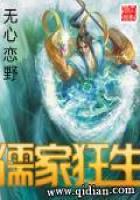Lanfranc died in 1089,--the ablest churchman of the century next to the great Hildebrand, his master. It was through his influence that England was more closely allied with Rome, and that those fetters were imposed by the popes which the ablest of the Norman kings were unable to break. The Pope had sanctioned the atrocious conquest of England by the Normans--beneficially as it afterwards turned out--only on the condition that extraordinary powers should be conferred on the Archbishop of Canterbury, his representative in enforcing the papal claims, who thus became virtually independent of the king,--a spiritual monarch of such dignity that he was almost equal to his sovereign in authority. There was no such See in Germany and France as that of Canterbury. Its mighty and lordly metropolitan had the exclusive right of crowning the king. To him the Archbishop of York, once his equal, had succumbed. He was not merely primate, but had the supreme control of the Church in England. He could depose prelates and excommunicate the greatest personages; he enjoyed enormous revenues; he was vicegerent of the Pope.
Loth was William to concede such great powers to the Pope, but he could not be King of England without making a king of Canterbury.
So he made choice of Lanfranc--then Abbot of St. Stephen, the most princely of the Norman convents--for the highest ecclesiastical dignity in his realm, and perhaps in Europe after the papacy itself. Lanfranc was his friend, and also the friend of Hildebrand; and no collision took place between them, for neither could do without the other. William was willing to waive some of his prerogatives as a sovereign for such a kingdom as England, which made him the most powerful monarch in Western Europe, since he ruled the fairest part of France and the whole British realm, the united possession of both Saxons and Danes, with more absolute authority than any feudal sovereign at that time possessed. His victorious knights were virtually a standing army, bound to him with more than feudal loyalty, since he divided among them the lands of the conquered Saxons, and gave to their relatives the richest benefices of the Church. With the aid of an Italian prelate, bound in allegiance to the Pope, he hoped to cement his conquest. Lanfranc did as he wished,--removed the Saxon bishops, and gave their sees to Normans. Since Dunstan, no great Saxon bishop had arisen. The Saxon bishops were feeble and indolent, and were not capable of making an effective resistance. But Lanfranc was even more able than Dunstan,--a great statesman as well as prelate. He ruled England as grand justiciary in the absence of the monarch, and was thus viceregent of the kingdom. But while he despoiled the Saxon prelates, he would suffer no royal spoliation of the Norman bishops. He even wrested away from Odo, half-brother of the Conqueror, the manors he held as Count of Kent, which originally belonged to the See of Canterbury. Thus was William, with all his greed and ambition, kept in check by the spiritual monarch he had himself made so powerful.
On the death of this great prelate, all eyes were turned to Anselm as his successor, who was then Abbot of Bec, absorbed in his studies. But William Rufus, who had in the mean time succeeded to the throne of the Conqueror, did not at once appoint any one to the vacant See, since he had seized and used its revenues to the scandal of the nation and the indignation of the Church. For five years there was no primate in England and no Archbishop of Canterbury. At last, what seemed to be a mortal sickness seized the King, and in the near prospect of death he summoned Anselm to his chamber and conferred upon him the exalted dignity,--which Anselm refused to accept, dreading the burdens of the office, and preferring the quiet life of a scholar in his Norman abbey. Like Thomas Aquinas, in the next century, who refused the archbishopric of Naples to pursue his philosophical studies in Paris, Anselm declined the primacy of the Church in England, with its cares and labors and responsibilities, that he might be unmolested in his theological inquiries. He understood the position in which he should be placed, and foresaw that he should be brought in collision with his sovereign if he would faithfully guard the liberties and interests of the Church. He was a man of peace and meditation, and hated conflict, turmoil, and active life. He knew that one of the requirements a great prelate is to have business talents, more necessary perhaps than eloquence or learning. At last, however, on the pressing solicitation of the Pope, the King, and the clergy, he consented to mount the throne of Lanfranc, on condition that the temporalities, privileges, and powers of the See of Canterbury should not be attacked. The crafty and rapacious, but now penitent monarch, thinking he was about to die, and wishing to make his peace with Heaven, made all the concessions required;and the quiet monk and doctor, whom everybody loved and revered, was enthroned and consecrated as the spiritual monarch of England.
Anselm's memorable career as bishop began in peace, but was soon clouded by a desperate quarrel with his sovereign, as he had anticipated. This learned and peace-loving theologian was forced into a contest which stands out in history like the warfare between Hildebrand and Henry IV. It was the beginning of that fierce contest in England which was made memorable by the martyrdom of Becket. Anselm, when consecrated, was sixty years of age,--a period of life when men are naturally timid, cautious, and averse to innovations, quarrels, and physical discomforts.















